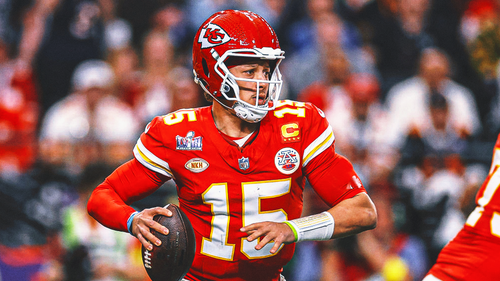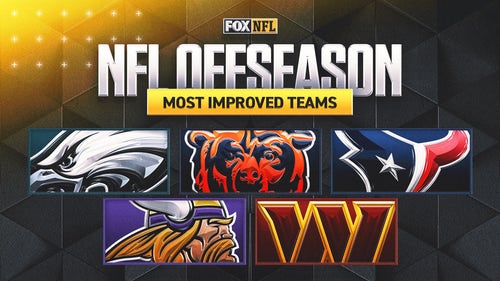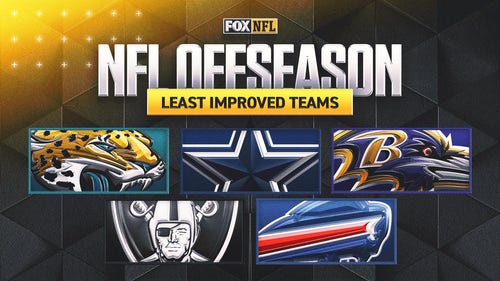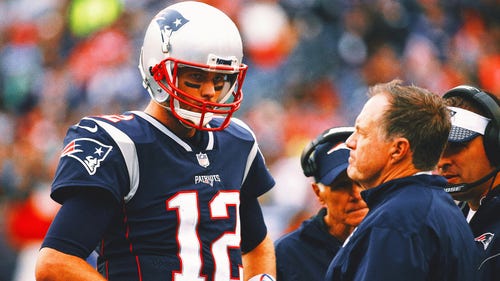
Ezekiel Elliott isn't the NFL MVP. No running back ever is.
Among folks who've played the entire 2016 season, Ezekiel Elliott is the best rookie, running back and offensive player in the NFL. No doubt. He's somehow managed to exceed the insane expectations that accompanied his arrival in the NFL. As such, there has been an increasing chatter about Elliott's chances of winning the NFL MVP award. Various websites and publications have Elliott at the top of their "MVP trackers," and football shows on broadcast and cable have been debating the topic for the past few weeks. Those in favor of an Elliott MVP award make a compelling case but not compelling enough: Ezekiel Elliott isn't the most valuable player in the NFL and, frankly, no running back ever is.
It all boils down to the semantics of the prize. Most valuable player. Which player is of the greatest worth to his team? Which player, if taken away from a roster, would be missed the most? The answer is always -- always -- a quarterback. They're what makes an NFL team go. That's not to say every specific team's MVP is the quarterback (cough, Houston, cough), but when it comes to the MVP of a league, there's never been any other position player deserving. Great quarterbacks are always more important than great running backs. Always.
Take 2012 MVP Adrian Peterson, who led the league in rushing again in 2015 and was a first-team All-Pro. He's undeniably one of the best to ever line up in the backfield. He got hurt in Week 2 of this season, figuring to bury the Vikings. Instead, the team is 6-4 and tied for the lead in the NFC North even while starting a running back tandem that's been historically awful. How valuable can Peterson be if the team hasn't missed a beat without him? The 2010 Colts went 10-6, their ninth straight double-digit win season capped by a ninth straight playoff berth. Peyton Manning got hurt, and the team went 2-14 in 2011. Only two examples, yes, and surely you can find examples to the contrary. But when you're looking at the best players in the league -- the would-be MVP candidates -- ask their coach the question: Who would you rather have? Dak Prescott or Ezekiel Elliott? Ben Roethlisberger or Le'Veon Bell? Russell Wilson or Marshawn Lynch (last year, anyway)? They're taking the QB without blinking.
What would happen to the Cowboys if Ezekiel Elliott were replaced by an average back? Not as much as you think. The Redskins started an undrafted rookie running back on Sunday night against the Packers. Rob Kelley ran 24 times for 137 yards (5.71 ypc) and three touchdowns. Earlier this year, Elliott ran 28 times for 157 yards (5.61 ypc) and no touchdowns against Green Bay. No one is saying Rob Kelley is better than Ezekiel Elliott or even on the same level, but guys who can run through holes and get yards after contact are far easier to find than a quarterback who can run the two-minute drill and place a 35-yard pass on the numbers of his double-covered receiver. When a quarterback goes down it's catastrophic (unless you're the Patriots, in which case Bill Belichick works some of his dark magic to keep the team afloat until Tom Brady comes back). When a running back goes down, you adapt, as the Steelers did earlier this year when Bell sat with a suspension.
Football isn't baseball, a sport in which voters have to parse or ignore the semantics of an MVP award. Is the honor bestowed upon the most valuable player or the best offensive one? Sometimes they're one and the same, or should be. But because baseball is an individual sport with a team structure, that can get lost in translation. How can Mike Trout be the most valuable player, some wrongheaded writer thinks, if he's on a team that finished 15 games out of the playoff race? Because of that misconception, baseball voters usually are voting for a Most Outstanding Player rather than an MVP.
Football doesn't have that problem. There already is an award that's perfect for a guy like Elliott who's had (or is having) a great season: offensive player of the year.
Running backs have won the MVP 13 times (with one tie) and usually for one of two reasons: They've had a historic season (usually 2,000 yards or a record-breaking amount of touchdowns) or there's a dearth of other candidates. A running back has won the OPY award 24 times (and that award has been around only since 1972). Voters are able to compartmentalize the difference in the two honors.
That shouldn't change this year. Tom Brady, Dak Prescott, Derek Carr and Matt Ryan are all better candidates than Elliott because a team's success almost invariably begins and ends with its quarterback. Barry Sanders and O.J. Simpson were among the five best running backs in NFL history. Neither experienced much, if any, team success. Their franchises would have traded them in for a quarterback with the same talent level.
Running backs are disposable. Quarterbacks are the cornerstones of franchises. Both are important, but only one brings the value it takes to win Super Bowls.


















































































































































